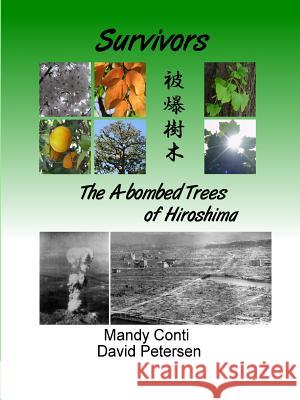Survivors: The A-bombed Trees of Hiroshima » książka
Survivors: The A-bombed Trees of Hiroshima
ISBN-13: 9781409205012 / Angielski / Miękka / 2008 / 334 str.
Hiroshima Peace Memorial Park, built at what was once the hypocenter of an atomic blast, is the most visible sign of the city's renaissance as a force for peace in 21st century politics. But it is not the only reminder of the spirit of Hiroshima. Less well-known are the scores of "survivors" dotting the metropolitan landscape. These treasured trees, shrubs, and groves date from before the bombing on August 6th 1945. They were spared from annihilation, and are now carefully tended by the schools, homes, temples, and shrines entrusted by fate with their care. Based on a three-year stay in the city by the authors, this pictorial journey into the heart of Hiroshima documents more than 50 sites and 75 trees. There are maps, bilingual place names and addresses, snapshots of local culture, and overviews of each species of plant. Never-before published translations of essays by the a-bomb survivor Tamiki Hara are also included as meditations on the meaning of peace in difficult times.
Hiroshima Peace Memorial Park, built at what was once the hypocenter of an atomic blast, is the most visible sign of the citys renaissance as a force for peace in 21st century politics. But it is not the only reminder of the spirit of Hiroshima. Less well-known are the scores of "survivors" dotting the metropolitan landscape. These treasured trees, shrubs, and groves date from before the bombing on August 6th 1945. They were spared from annihilation, and are now carefully tended by the schools, homes, temples, and shrines entrusted by fate with their care. Based on a three-year stay in the city by the authors, this pictorial journey into the heart of Hiroshima documents more than 50 sites and 75 trees. There are maps, bilingual place names and addresses, snapshots of local culture, and overviews of each species of plant. Never-before published translations of essays by the a-bomb survivor Tamiki Hara are also included as meditations on the meaning of peace in difficult times.











